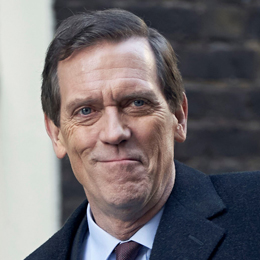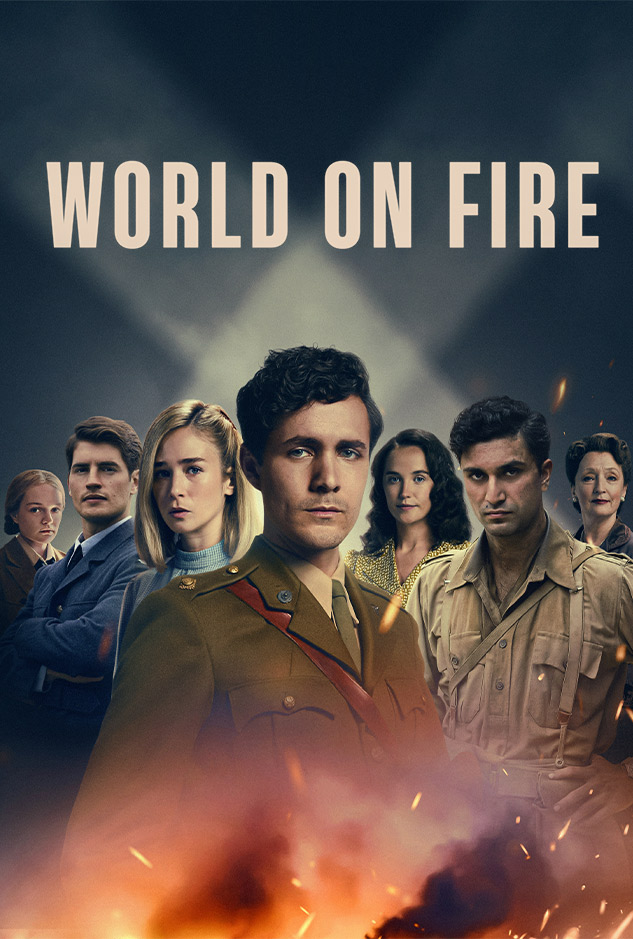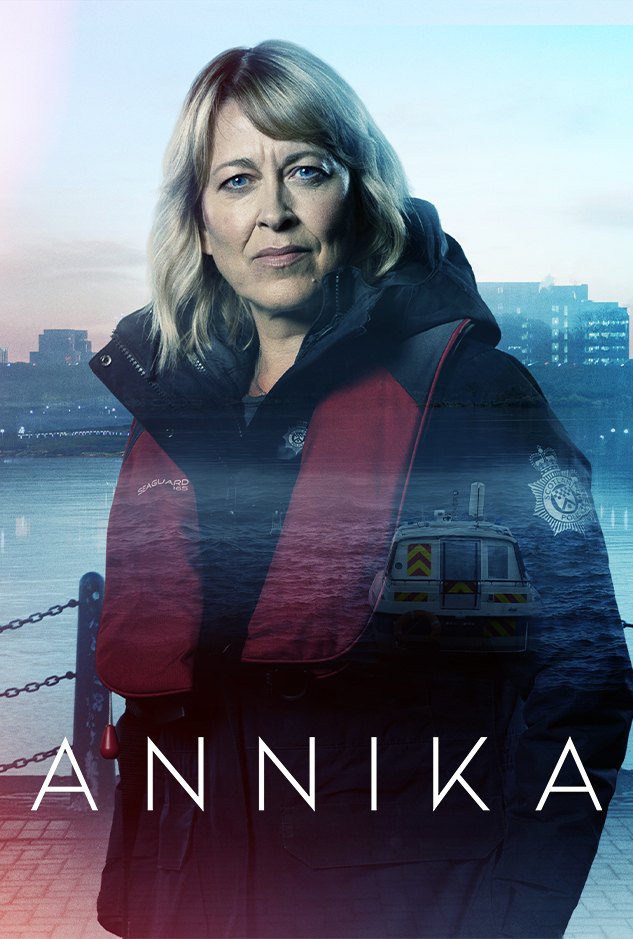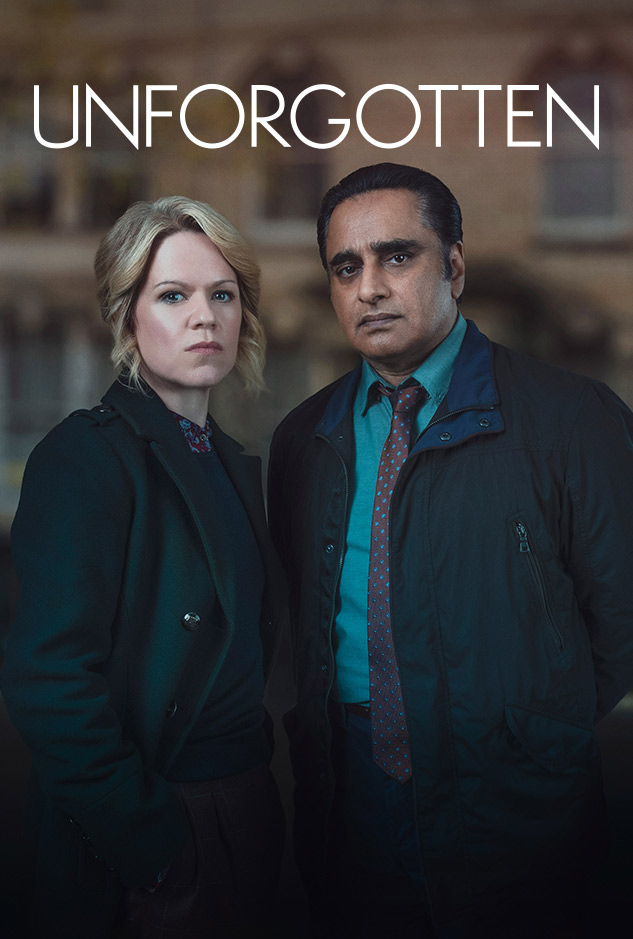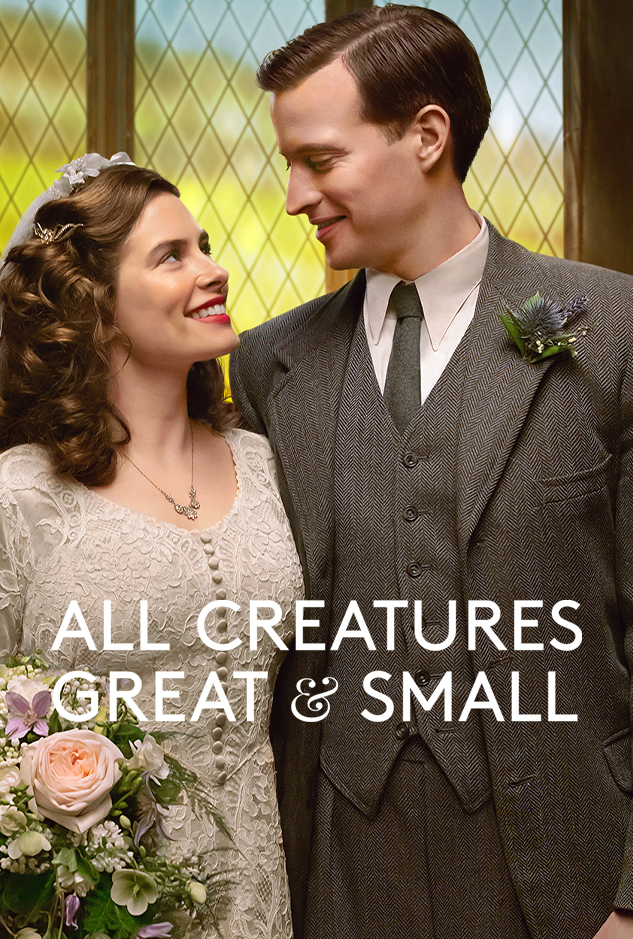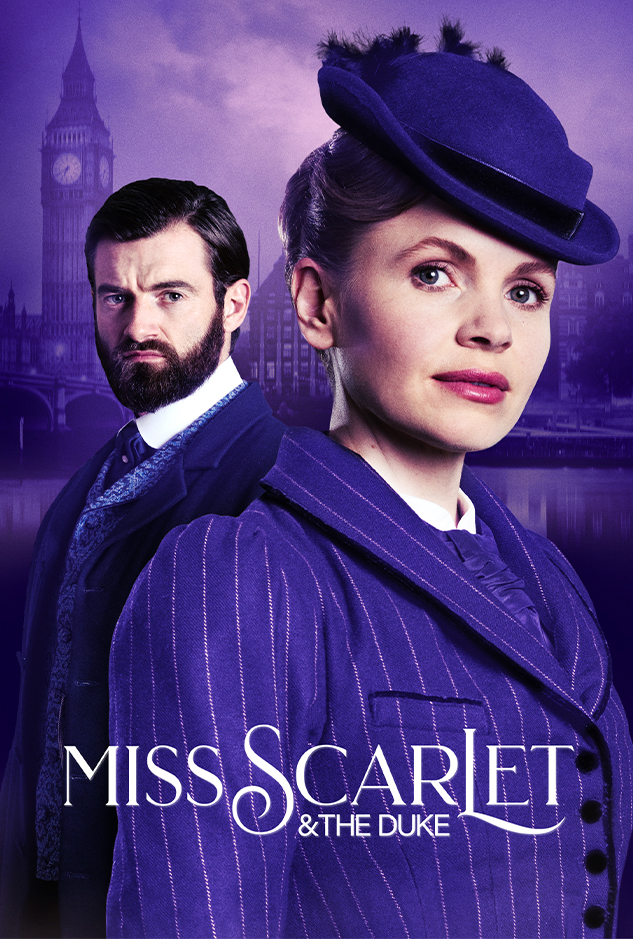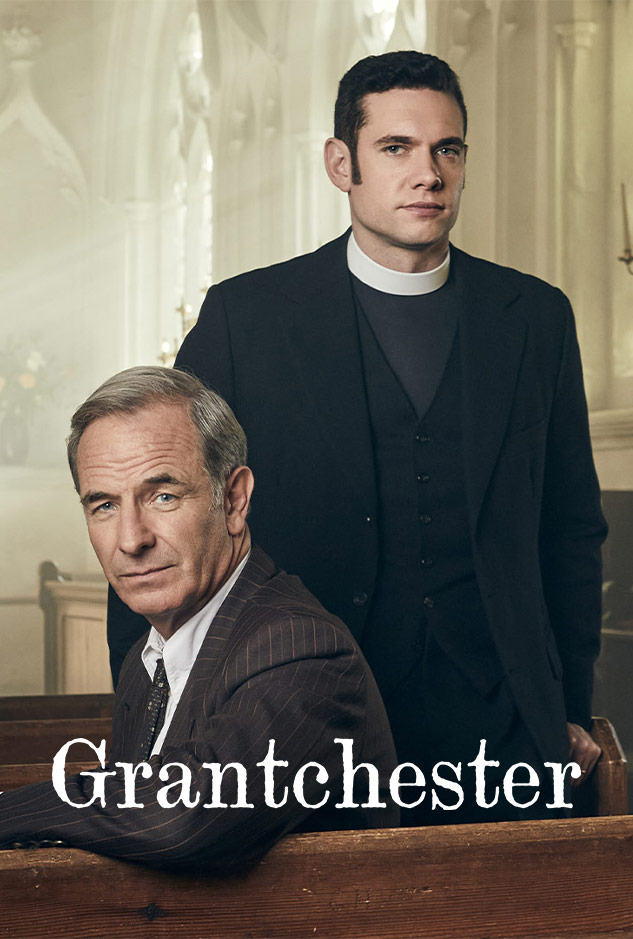Cast Interview: Millie Brady
Actress Millie Brady may have period drama down, with her popular roles in The Last Kingdom and Pride and Prejudice and Zombies. Now, she comes blazing into the 21st century as tenacious truth-seeker Lily Laurence in Roadkill, alongside Hugh Laurie. Discover her insights into her character, her costumes, and the music…and find out her funniest Hugh Laurie experience!
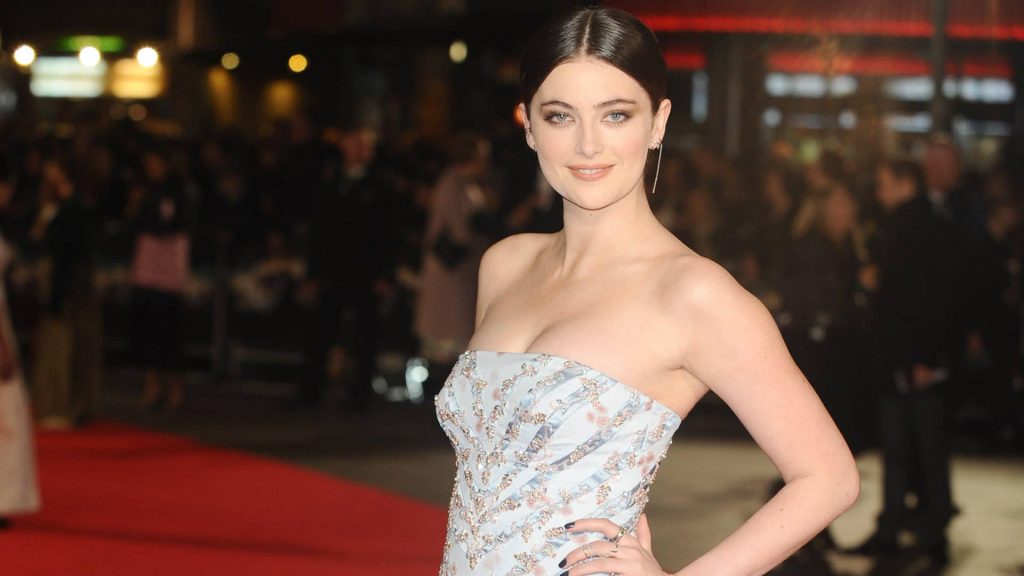

What drew you to playing Lily?
I felt a massive pull to the character when I first read the scripts. I saw some aspects of my younger self in her, for sure. I think that Lily hasn’t really found her voice, yet, to be able to say, “I need this from you,” or “I need help.” A lot of the time, she’s acting from a place of hurt and at the crux of it, there’s just this massive want to be loved, which I think a lot of young people can, hopefully, connect to.
What I love so much about the character, and also how David Hare writes all of his characters, is that they’re written from such a place of truth that it’s not always pretty; it’s just really honest. David has this beautifully observational way of writing characters where I read it and they don’t feel fictional—they feel like real people that have inner worlds going on, and a real heartbeat. So that’s definitely what drew me to her character.
Peter is all about freedom for himself and for his family, but he doesn’t seem to get that his position makes his family members a target of the press. So how do you think being Peter Laurence’s daughter shaped Lily as a person?
I think sometimes, he sees his family as a bit of a narcissistic extension of himself, rather than people who actually need him and need to feel protected—and I definitely felt that for Lily, anyway. All Lily was crying out for is love and protection. I just think that he doesn’t have the easiest time noticing. When I was exploring Lily with David, the writer, and Michael [Keillor], the director, one of the most important things for me was that we wanted her to have this kind of childlike quality, where there’s still that element of wanting to see her dad as this knight in shining armor. And throughout the story, we see that crumble.
I think what Lily’s going through is the same thing that all children go through at some point, as they reach maturity: you start to see your parents as humans, and you start to notice their faults. But having a public figure as a father definitely intensified that, and I think, sadly for Lily, that having a father who is so preoccupied with his affairs—in all senses of the word—has made the transition more painful, in a way. And I think that’s probably a large reason for her rebellious behavior at times.
Why do you think truth is so important to her?
Coming from her family where there’s just so much deception and lies, I think a product of that can be a child who craves truth more than anything. And as well, Peter is constantly praising himself for being a truth-teller. I think that for Lily, it actually is a really integral part of her character—she’s not seeking truth for popularity; she is seeking truth for connection. And I think that is something pretty mature and vulnerable in her. Especially with her being so young, I find it pretty admirable that for her character, truth is of the utmost importance.
What was it like working with Hugh Laurie?
It was so amazing. I don’t have enough good things to say about him. He’s just one of the most amazing people I’ve worked with. He was really kind and funny. I found his presence very calming to be around, and I think that was super important, because with the scenes that we had together, it was important to feel a bond in some way, and to have something to push against and not be afraid to scream and cry. He made that feel quite easy, which was such a huge thing. To make those scenes believable, there was a really amazing level of trust there. I just love him.
Do you have a favorite offscreen moment with him?
Yeah, the whole time we were all kind of just constantly giggling. It felt really fun the whole time for us, as a family unit, but one moment that sticks in my head is when Ophelia [Lovibond], who plays my sister, and I were in the green room together just having a chat. And then suddenly from under the table, we heard snoring, and I hadn’t realized that he was asleep under the table the whole time! He’d always choose really random places to fall asleep, and it would be like, “Where’s Hugh? Oh, he’s behind a cupboard fast asleep.”
What was it like working with Saskia Reeves (Helen Laurence)?
That again was such an amazing experience. What’s so incredible about her is just how thorough she is as an actor, and I was in awe watching her, how she navigated herself around the Laurence house. She made sure that she knew every switch and every handle, so that in scenes, it would look like she was Helen Laurence and that she did live in that house. It seemed like such a small thing, but it made such a difference to see someone act and just instinctively know where the handle for the door is and stuff, because it immediately sells that character on a different level, that she was Helen. Seeing that was quite amazing, and she was an amazing actress and very kind and generous, and a really incredible person as well.
What was the process of creating Lily’s wardrobe? Did you have a hand in it? And what does it tell us about her character?
Yes—Sheena [Napier], the costume designer, was really incredible. She got all of the cast really involved in the creation of their characters’ wardrobes, so we went out over a couple of days and worked on Lily’s wardrobe together. The thought process was that her clothes in everyday life would be quite muted, and they made her blend in, and she wore a lot of baggy shapes. I think this darkness was then mirrored in her music choices, in a way. And there had to be this juxtaposition, then, between what she wears day-to-day, which is just normal student wear with a bit of grunge, and what we see her in at the party, which is where we wanted to show this rebellious streak. But we wanted to make it feel kind of like a toddler putting their mom’s high heels on. We wanted to feel that the revealing outfit for that party was more of a rebellion and a cry for attention than her true identity. It was really interesting, mixing those elements and having them try and tell a story, subconsciously, about the character. It was really fun to play with that.
Can you talk about what music means to her, especially in contrast with her mother?
I think Lily’s music choice felt almost like a direct rebellion to her mother. It’s the total opposite of what she’s grown up with, and I think it’s the same for a lot of kids—at the beginning, finding their own identity often falls under being the total opposite of your parents. I do think, though, that the music Lily listened to was a reflection of her head at the time, kind of chaotic and angry, and I think that it puts into words how Lily felt a lot of the time. There’s a bit of the emo feeling to Lily that I love—she’s got darkness to her that she embraces, in a lot of ways.
Michael [Keillor], the director, was really amazing—he would send songs that he thought would fit her character and then I would send some to him, and we just played song tennis, backwards and forwards. There was The Fall, Elastica, some Courtney Love, and then Michael found this Aussie band called Amyl and the Nitrites. We were in a very similar head space to where we thought her music tastes came from, and in that dancing scene at the beginning, we wanted it to be a track that perfectly reflected that, as well. So again, it was another sort of subliminal insight into Lily’s character.
You’ve done fair amount of period drama, from The Last Kingdom to Pride and Prejudice and Zombies. What have you enjoyed about making something that’s so 21st century?
I’ve actually been itching to do so for a while now, and this felt like the perfect thing to enter the 21st century with, because I had been a big David Hare fan for a long time. I’ve long admired how he always writes from a place of intrigue rather than judgment. He’s just such a truth-teller. So to have been offered this role was kind of a dream come true, in a way.
I love doing period dramas, but I think there’s a certain level, more truth, that you can access when you’re playing someone that you generationally connect to. I think there is an understanding that’s in some ways trickier to grasp in period pieces. But I do feel really lucky to be doing both, and that they are such different things.
Are there any similarities between your Last Kingdom character, Æthelflæd, and Lily?
I think they’re both incredibly gutsy women. I think they both act from the heart, and they have a very strong understanding of what they need and want. And although Lily’s way of showing it might be somewhat misplaced at times, I think they’re both incredibly resilient women and both of them have an enormous capacity for love, as well, which I really respect in both of those characters.
What is there in Roadkill that fans of The Last Kingdom might love?
Conflict, I would say definitely, conflict. More broadly speaking, there is the theme of a broken England, and I think the two shows show this divide in obviously very different ways, but the theme remains. And I think there’s a lot of playing with the audiences’ loyalties, which both shows do really beautifully, as well. One moment you can be cursing a character and then the next be feeling sorry for them. So, I think both shows, definitely a battlefield with a complicated protagonist front and center.
Would you be willing to share a list of songs that were important to your creation of Lily’s character, that we could compile for our listeners?
I’d love to do that, it’d be really fun!








